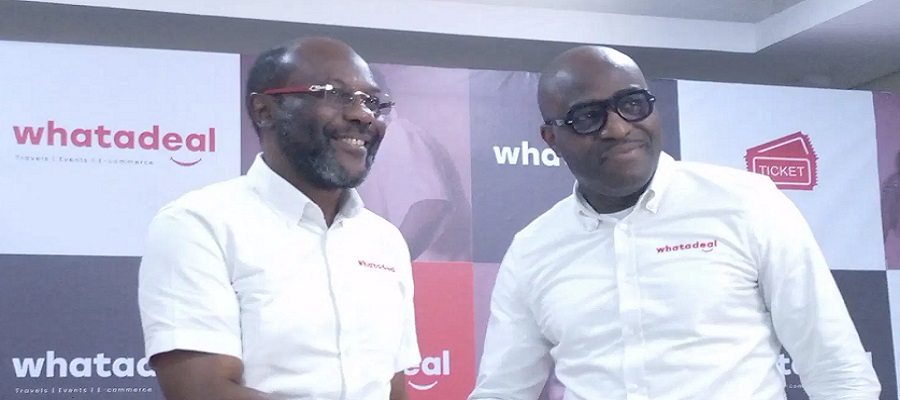E-Business
Check Point Exposes Notorious Hacktivist ‘VandaTheGod’

Check Point has shared research detailing its investigation to expose the real identity of a notorious super-hacker who has been responsible for attacks on 4 820 Web sites, the theft of the private data of around one million people, and the sale of stolen credit cards.

In addition, for the last seven years, official Web sites belonging to governments worldwide were hacked and defaced by this hacker, who identified himself as ’VandaTheGod’. The hacks push an anti-establishment message and were carried out, he claimed, to combat social injustices that the hacker believed were a direct result of government corruption.
He targeted governments in numerous countries, including South Africa, Brazil, the Dominican Republic, Trinidad and Tobago, Argentina, Thailand, Vietnam, and New Zealand.
He was certainly cunning, but not too clever, as a silly mistake on Facebook exposed him, and will likely seal his fate.
“The person behind the ‘VandaTheGod’ persona has used multiple aliases over the years, including ‘Vanda de Assis’ or ’SH1N1NG4M3’, and was highly active on social media, primarily Twitter,” says Check Point. “They would often share the results of those hacking endeavours with the public. A link to this Twitter account would sometimes even be added to the message VandaTheGod left on compromised Web sites, confirming that this profile was in fact managed by the attacker.”
Many of the tweets in this account were written in Portuguese, and the hacker claimed to be a part of the “Brazilian Cyber Army” or “BCA”, often displaying BCA’s logo in screenshots of compromised accounts and Web sites.
VandaTheGod didn’t only target government Web sites, but also launched attacks against public figures, universities, and even hospitals. In one case, he claimed to have access to the medical records of 1 million patients from New Zealand, which were offered for sale for $200.
While the majority of VandaTheGod’s attacks against governments were politically motivated, but closer scrutiny of his tweets shows he was also trying to achieve a personal goal: hacking a total of 5 000 Web sites, a goal that was nearly achieved, with 4 820 records of hacked Web sites linked to him.
The man behind the handle
VandaTheGod’s prominent role in several hacking groups, as well as his love of publicity, meant that he stayed in touch with others in the hacking community via numerous social media accounts, backup accounts in case of takedown, e-mail addresses, Web sites and more. Through the years, this activity left a long trail of information for Check Point to investigate.
For example, the WHOIS record for VandaTheGod.com revealed that the Web site was registered to an individual from Brazil, more specifically from Uberlandia, using the e-mail address fathernazi@gmail.com. In the past, VandaTheGod claimed to be a member of the UGNazi hacking group, and this e-mail address was used to register additional Web sites, such as braziliancyberarmy.com.
This wasn’t the only time the hacker got sloppy and shared details online that gave away valuable information about his identity. Another example, a screenshot that showed the compromised e-mail account of Brazilian actress and TV presenter Myrian Rios also shows an open Facebook tab with the name “Vanda De Assis”, and looking that name up led to a profile belonging to the attacker.
“While this profile did not share any details about the real identity of VandaTheGod, we were able to see many similarities between this and the Twitter accounts operated by the attacker, as the same content was often shared on both platforms,” says Check Point. “What was more interesting, however, was that this screenshot revealed the name of a user that we will identify here only by initials MR.”
At first Check Point was unsure if these were the hackers real initials, but upon further investigation, discovered a first name with these initials also appearing in several screenshots shared in VandaTheGod’s Twitter as the username of the machine used for this hacking activity.
Researchers tried to search Facebook for people named MR, but unsurprisingly, were presented with too many possibilities to fully explore. “Our breakthrough came when we searched for MR in conjunction with the city we previously observed in vandathegod.com’s WHOIS information: “UBERLANDIA”.
This still gave Check Point numerous Facebook profiles, but researchers were able to locate a single account, which contained an uploaded image endorsing the Brazilian Cyber Army. “At this point, we knew that we were on the right track. All that was left for us to do was to connect this individual’s account with one of the known VandaTheGod’s accounts. We were able to locate several cross-posts between the newly discovered profile and Vanda de Assis’s Facebook account,” the researchers say.
Finally, Check Point located shared photos of the same surroundings from different angles, specifically, the poster’s living room. This confirmed that both the MR and VandaTheGod accounts were being controlled by the same person.
E-Business
SystemSpecs’s Subsidiary Deelaa Becomes Whatadeal

SystemSpecs Holdings Ltd unveiled at the weekend the rebranding of its subsidiary Deelaa to Whatadeal, launching an ambitious digital commerce platform poised to transform travel, events, and e-commerce across Africa.

John Obaro, group managing director, SystemSpecs, and Fela Bank-Olemoh, managing director of Whatadeal
The announcement comes amid a surging demand for integrated digital services in Nigeria and beyond, as the continent’s e-commerce and travel sector stand on the cusp of exponential growth.
The launch event, held in Lagos, demonstrated SystemSpecs’ vision for a seamless, value-centric consumer experience.
This strategic rebrand follows the company’s acquisition of Knit Technologies, amalgamating cutting-edge innovation and industry expertise into Whatadeal—one of four subsidiaries under the SystemSpecs umbrella.
John Obaro, group managing director, SystemSpecs, emphasized that the transformation reflects an unwavering commitment to technological advancement and customer empowerment.
“Whatadeal transcends a mere rebranding—it embodies a dynamic ecosystem designed to deliver unparalleled value and memorable experiences,” Obaro told reporters.
He elaborated, “Our ambition is to ensure that whether you’re organizing an event, procuring tickets, or seeking the finest deals, Whatadeal is your definitive destination. We are also in advanced discussions with leading travel industry players to curate exceptional travel experiences across Nigeria.”
Originally introduced in 2022 as an e-ticketing and marketplace platform, Deelaa catered to both businesses and consumers.
Its evolution into Whatadeal responds to shifting market dynamics, offering an integrated solution for booking flights, securing event tickets, and shopping online.
The platform will be powered by Remita, SystemSpecs’ acclaimed electronic payment and collection system, which underpinned Nigeria’s Treasury Single Account initiative—one of the most extensive implementations of its kind in Africa.
Steering this venture is Fela Bank-Olemoh, managing director of Whatadeal and a SystemSpecs stalwart since 1998.
With over two decades of expertise spanning technology, marketing, and public service, Bank-Olemoh brings a formidable pedigree to the role.
He founded MediaVision Limited, a preeminent sports marketing firm in Nigeria, before serving as Special Adviser on Education to the Lagos State Governor from 2015 to 2019 and later as Senior Special Assistant on Education Interventions to Nigeria’s President from 2019 to 2023.
Bank-Olemoh articulated the platform’s ethos: “At Whatadeal, we hold that exceptional experiences and valuable offers should be effortless, not convoluted. Our mission extends beyond merely facilitating deals—we are cultivating an ecosystem that nurtures engagement, trust, and enduring value for our customers.”
He added, “Whether you’re arranging travel, acquiring event tickets, or purchasing essentials, you deserve an intuitive, rewarding experience that consistently delivers excellence. Whatadeal is dedicated to realizing that vision.”
SystemSpecs aims to establish Whatadeal as the preeminent one-stop platform for African consumers, blending convenience with competitive offerings.
With its fusion of Knit Technologies’ innovations and Remita’s robust infrastructure, Whatadeal is poised to redefine digital commerce on the continent.
E-Business
Cybersecurity Firm Says It’s Time to Back it Up, As the World Marks World Backup Day

How much do you trust your device memory? Definitely more than you should. According to the statistics only 33% of users back up their data regularly, and more than 77% of people have already experienced data loss.

An annual tradition which started as a simple reddit post back in 2011, World Backup Day is celebrated on 31st March 2025 to provide a reminder of the importance of backing up data. To mark the occasion, Kaspersky shares practical advice on how to create new beneficial digital habits to ensure your backups are safe.
The first question that should be taken into consideration is: what exactly needs to be backed up? The answer seems to be lying on the surface.
The more you back up – the better. Work-related documents, family photos, financial info, health records, logins and passwords, and even content shared within messengers. In fact, all of this needs to be backed up using reliable storage methods.
There are several reasons why it is recommended to copy as much data as you can.
First of all, the device on which the information is stored may simply be lost, stolen or damaged. For example, UK’s South Western Railway reports that at least 5 smartphones are lost per day on its network, which is almost 1800 devices per year.
Among other potential threats to data safety are ransomware attacks. This is a type of malware that blocks a computer and then demand a ransom for its release. In some cases, even paying the ransom does not help to restore data on an infected device.
Despite these substantial risks, in everyday life it’s almost impossible (and to some extent pointless) to back up everything. Our devices contain gigabytes of information, most of which has no value. Creating backup storages of such a scale is time-consuming and expensive.
The main advice is to rank data correctly. Try to assort the items needing to be backed up by evaluating their relevance, recency and recovery options.
If a file, record or password is outdated or may be replaced by a newer version, backup may be safely ignored. If it is a new or highly valuable piece of information, backing up is necessary and preferably there should be more than one copy.
The art of backup
The next step towards data loss prevention is finding the suitable backup method to select. Obviously, it depends on multiple factors: type of data, type of device, pricing, user’s personal preferences and habits.
The most popular backup options are generally cloud or external storage services. Both of these methods have their pros and cons. For example, cloud services give you instant access to information wherever you are, but they require regular subscription payments.
At the same time, external hard drives are reliable storages which only require one payment, but access to information on these devices is only possible when they are at hand.
Therefore, cloud storage is regarded as the perfect option for storing files and photos which should always be available in a few clicks, while external storage services are suitable for data archives and huge files, such as movies or videos which you rarely use. Overall statistics show that nowadays most people choose cloud technology as their main storage option.
Specific data such as passwords, ID or financial details require even more secure storage methods.
Among the potential solutions password manager is an option that protects sensitive personal information, prevents its loss and provides immediate access to it at any time. Automatic filling of authentication and banking data means users do not have to memorise important information and reliably protects data from being compromised.
While choosing backup and storage options it’s highly recommended to consider all the aspects. To get backing up into a real habit, the method should not only be reliable and effective, but also suitable and convenient for you personally.
Enhanced protection
As it has been already mentioned, single manual backup might not be enough to protect data from being lost. World Backup Day is the right time to remember that data might be vulnerable and take some proactive steps to secure it. Kaspersky has created some tips on how to do it effectively:
- Follow the rule 3-2-1. One of the most popular backup strategies is to have at least 3 copies of important data, store it on 2 different storage types, and make at least 1 copy off-side (cloud or external physical location).
- Set up automatic backups. Most devices and services have a preinstalled backup function, which automatically creates a backup if you forget to make a copy in time.
- Use a reliable security solution. Comprehensive digital protection with a specific anti-ransomware protection mechanism, such as in Kaspersky Premium, prevents device infection and protects your data from both local and remote-access ransomware attacks.
- Make regular checks. It’s necessary to test your backups workability on a regular basis to notice the malfunction in time and fix it.
E-Business
FG Launches Online Visa Approval Centre

Dr. Olubunmi Tunji-Ojo, minister of Interior, has announced the launch of an Online Visa Approval Center to eliminate bureaucratic bottlenecks and reduce corruption in the visa application process.

Commissioned by the President in December, the new system ensures that applicants no longer need to visit a visa office, know anyone in the system, or lobby for approvals.
At a stakeholders’ sensitisation workshop on the implementation of the Nigeria Visa Policy (NVP) 2025, yesterday in Abuja, Dr. Tunji-Ojo said the visa is considered a very important document by the government because it is an instrument of migration management and an instrument of economic development.
The minister explained that Nigeria has to strike a delicate balance between national security and, of course, the ease of migration.
“And we think that it’s something that we can do and something we will do.
“We don’t have a physical Visa Approval Center. If you apply for a Nigerian visa anywhere in the world, you do so online. We process it here in Nigeria, and if approved, you receive your e-visa in your email,” he explained.
To enhance efficiency, the government has set a 48-hour deadline for processing e-visas.
“It is unprofessional and unacceptable for the Nigeria Immigration Service not to approve or provide feedback within 48 hours,” the minister stated.
“It breaks my heart that people need to lobby to even get visas to Nigeria. It shouldn’t be so. It shouldn’t be.
“For anybody that is qualified, for anybody that wants to do legitimate activities in Nigeria, such people should be able to come to Nigeria easily. And this is why we are opening our space. Mr. President is interested in foreign direct investments.”
Further, he said Nigeria is interested in partnering with the rest of the world to develop its economy but, “We can’t do that when we allow bottlenecks to hold us down. So these reforms, basically, are aimed at opening our space, enhancing national security, and we hope that the primary responsibilities of the visa scheme will be achieved.”
Kemi Nandap, controller general, Nigeria Immigration Service (NIS), said the NIS would fully digitize its e-visa platform and reduce visa classifications from 79 to 44 to enhance accessibility, transparency, and efficiency in the new visa policy.
She said, “At the core of this policy is the new e-visa platform—a fully digitized, centralized system that revolutionizes how foreign nationals interact with our country’s entry procedures. As part of this transformation, the Nigerian Visa Policy 2024 underwent a comprehensive review, resulting in a significant reduction in visa classifications from 79 to 44.
“These categories have been logically grouped to simplify procedures, reduce complexities, and greatly improve the user experience. Importantly, we have maintained the original purpose and intent of each visa class throughout this reform.”

 Telecom1 day ago
Telecom1 day agoMTN, Lynk Global Make Africa’s First Satellite-to-Mobile Call

 General News1 day ago
General News1 day agoSERAP Asks National Assembly to Drop Bill to Jail Nigerians who Fail to Vote

 E-Business1 day ago
E-Business1 day agoSystemSpecs’s Subsidiary Deelaa Becomes Whatadeal

 E-Financial1 day ago
E-Financial1 day agoNigeria Gets Fresh $500m World Bank Loan for Economic Stimulus Programme

 Telecom1 day ago
Telecom1 day agoSmart Treasure Investment Team’s Initiatives Eradicate Poverty, Says Aminu

 E-Financial1 day ago
E-Financial1 day agoUninsured Depositors of Heritage Bank to Receive Liquidation Dividends In April – NDIC

 E-Business1 day ago
E-Business1 day agoCybersecurity Firm Says It’s Time to Back it Up, As the World Marks World Backup Day

 General News1 day ago
General News1 day agoFG to Elevate Enugu Tech Festival to National Event – Minister



























